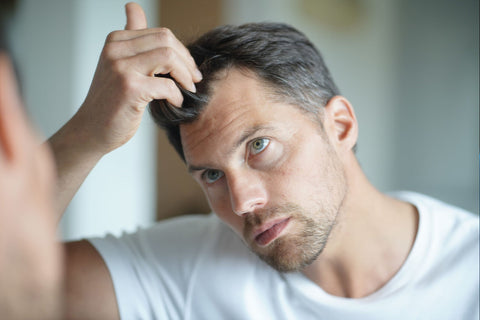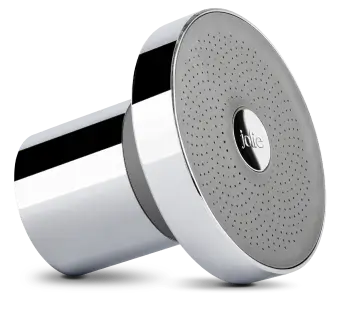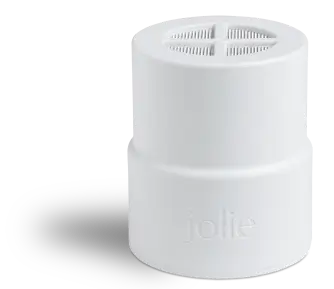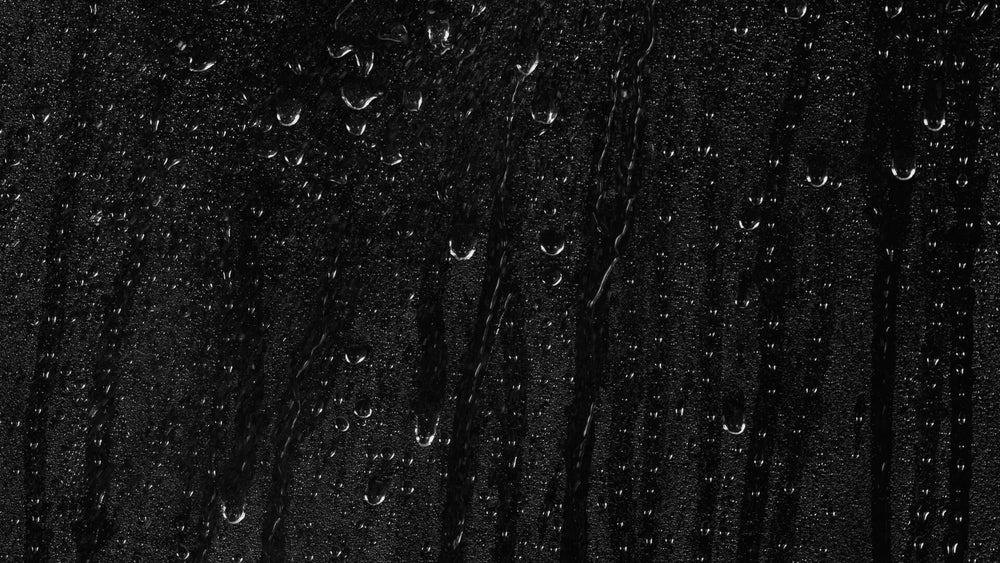window.productSubcriptionBundle = {"id":7285536194717,"title":"The Jolie Filtered Showerhead (With Subscription)","handle":"test-dev-the-filtered-showerhead","description":"\u003cmeta charset=\"utf-8\"\u003e\n\u003cdiv data-mce-fragment=\"1\" class=\"font-body font-light text-sm lg:text-base text-black mt-4 max-w-sm mx-auto\"\u003eThe most fundamental part of your daily routine, The Jolie Filtered Showerhead removes chlorine, heavy metals and other chemicals from your water for better skin, hair, and wellbeing.\u003c\/div\u003e\n\u003cdiv data-mce-fragment=\"1\" class=\"flex flex-col justify-center items-center mt-8\"\u003e\n\u003cdiv data-mce-fragment=\"1\" class=\"flex items-center\"\u003e\u003c\/div\u003e\n\u003c\/div\u003e","published_at":"2022-02-17T07:02:15-05:00","created_at":"2022-02-17T07:02:15-05:00","vendor":"Jolie","type":"Health \u0026 Beauty","tags":["TryNowAutomated","Verishop"],"price":12200,"price_min":12200,"price_max":12200,"available":true,"price_varies":false,"compare_at_price":15200,"compare_at_price_min":15200,"compare_at_price_max":16500,"compare_at_price_varies":true,"variants":[{"id":41980490547357,"title":"Brushed Steel","option1":"Brushed Steel","option2":null,"option3":null,"sku":"SHWR-BS-850036402084-S","requires_shipping":true,"taxable":true,"featured_image":{"id":40028927983909,"product_id":7285536194717,"position":2,"created_at":"2022-12-01T15:06:19-05:00","updated_at":"2025-06-25T06:41:01-04:00","alt":null,"width":1080,"height":1080,"src":"\/\/jolieskinco.com\/cdn\/shop\/products\/Steel_Taupe.png?v=1750848061","variant_ids":[41980490547357]},"available":true,"name":"The Jolie Filtered Showerhead (With Subscription) - Brushed Steel","public_title":"Brushed Steel","options":["Brushed Steel"],"price":12200,"weight":1588,"compare_at_price":15200,"inventory_management":"shopify","barcode":"","featured_media":{"alt":null,"id":32355953901861,"position":2,"preview_image":{"aspect_ratio":1.0,"height":1080,"width":1080,"src":"\/\/jolieskinco.com\/cdn\/shop\/products\/Steel_Taupe.png?v=1750848061"}},"requires_selling_plan":false,"selling_plan_allocations":[{"price_adjustments":[{"position":1,"price":15200},{"position":2,"price":3500}],"price":15200,"compare_at_price":12200,"per_delivery_price":15200,"selling_plan_id":811663517,"selling_plan_group_id":"85bf976274e79b5cb3c67862bffb70a7c0e566dd"}],"quantity_rule":{"min":1,"max":null,"increment":1}},{"id":41980490580125,"title":"Modern Chrome","option1":"Modern Chrome","option2":null,"option3":null,"sku":"SHWR-MC-850036402091-S","requires_shipping":true,"taxable":true,"featured_image":{"id":40028920054053,"product_id":7285536194717,"position":1,"created_at":"2022-12-01T15:05:01-05:00","updated_at":"2024-02-05T16:47:55-05:00","alt":null,"width":1080,"height":1080,"src":"\/\/jolieskinco.com\/cdn\/shop\/products\/SideAngle-Chrome_Grey.png?v=1707169675","variant_ids":[41980490580125]},"available":true,"name":"The Jolie Filtered Showerhead (With Subscription) - Modern Chrome","public_title":"Modern Chrome","options":["Modern Chrome"],"price":12200,"weight":1588,"compare_at_price":16500,"inventory_management":"shopify","barcode":"850036402091","featured_media":{"alt":null,"id":32355945578789,"position":1,"preview_image":{"aspect_ratio":1.0,"height":1080,"width":1080,"src":"\/\/jolieskinco.com\/cdn\/shop\/products\/SideAngle-Chrome_Grey.png?v=1707169675"}},"requires_selling_plan":false,"selling_plan_allocations":[{"price_adjustments":[{"position":1,"price":15200},{"position":2,"price":3500}],"price":15200,"compare_at_price":12200,"per_delivery_price":15200,"selling_plan_id":811663517,"selling_plan_group_id":"85bf976274e79b5cb3c67862bffb70a7c0e566dd"}],"quantity_rule":{"min":1,"max":null,"increment":1}},{"id":41980490678429,"title":"Jet Black","option1":"Jet Black","option2":null,"option3":null,"sku":"SHWR-JB-850036402077-S","requires_shipping":true,"taxable":true,"featured_image":{"id":32105386967197,"product_id":7285536194717,"position":4,"created_at":"2022-02-17T07:02:32-05:00","updated_at":"2025-06-25T06:41:01-04:00","alt":null,"width":3648,"height":3648,"src":"\/\/jolieskinco.com\/cdn\/shop\/products\/Jolie_Filtered_Showerhead_-_Side-6_da94b1ee-8d42-4ccf-aea8-f58067b053af.jpg?v=1750848061","variant_ids":[41980490678429]},"available":true,"name":"The Jolie Filtered Showerhead (With Subscription) - Jet Black","public_title":"Jet Black","options":["Jet Black"],"price":12200,"weight":1588,"compare_at_price":16500,"inventory_management":"shopify","barcode":"","featured_media":{"alt":null,"id":24413041459357,"position":4,"preview_image":{"aspect_ratio":1.0,"height":3648,"width":3648,"src":"\/\/jolieskinco.com\/cdn\/shop\/products\/Jolie_Filtered_Showerhead_-_Side-6_da94b1ee-8d42-4ccf-aea8-f58067b053af.jpg?v=1750848061"}},"requires_selling_plan":false,"selling_plan_allocations":[{"price_adjustments":[{"position":1,"price":15200},{"position":2,"price":3500}],"price":15200,"compare_at_price":12200,"per_delivery_price":15200,"selling_plan_id":811663517,"selling_plan_group_id":"85bf976274e79b5cb3c67862bffb70a7c0e566dd"}],"quantity_rule":{"min":1,"max":null,"increment":1}},{"id":45569197474085,"title":"Brushed Gold","option1":"Brushed Gold","option2":null,"option3":null,"sku":"SHWR-BG-850036402206","requires_shipping":true,"taxable":true,"featured_image":{"id":46164855554341,"product_id":7285536194717,"position":3,"created_at":"2024-05-16T09:57:47-04:00","updated_at":"2025-06-25T06:41:01-04:00","alt":null,"width":3360,"height":2241,"src":"\/\/jolieskinco.com\/cdn\/shop\/files\/BrushedGold.png?v=1750848061","variant_ids":[45569197474085]},"available":true,"name":"The Jolie Filtered Showerhead (With Subscription) - Brushed Gold","public_title":"Brushed Gold","options":["Brushed Gold"],"price":12200,"weight":1588,"compare_at_price":16500,"inventory_management":"shopify","barcode":"850036402206","featured_media":{"alt":null,"id":38800978084133,"position":3,"preview_image":{"aspect_ratio":1.499,"height":2241,"width":3360,"src":"\/\/jolieskinco.com\/cdn\/shop\/files\/BrushedGold.png?v=1750848061"}},"requires_selling_plan":false,"selling_plan_allocations":[{"price_adjustments":[{"position":1,"price":15200},{"position":2,"price":3500}],"price":15200,"compare_at_price":12200,"per_delivery_price":15200,"selling_plan_id":811663517,"selling_plan_group_id":"85bf976274e79b5cb3c67862bffb70a7c0e566dd"}],"quantity_rule":{"min":1,"max":null,"increment":1}},{"id":47893025128741,"title":"Vibrant Red","option1":"Vibrant Red","option2":null,"option3":null,"sku":"SHWR-VR-850036402220-S","requires_shipping":true,"taxable":true,"featured_image":{"id":32105386868893,"product_id":7285536194717,"position":5,"created_at":"2022-02-17T07:02:32-05:00","updated_at":"2025-06-25T06:41:01-04:00","alt":null,"width":3648,"height":3648,"src":"\/\/jolieskinco.com\/cdn\/shop\/products\/Jolie_Filtered_Showerhead_-_Side-3_c5ad9762-ec00-4b42-86b3-ca599db1fb47.jpg?v=1750848061","variant_ids":[47893025128741]},"available":true,"name":"The Jolie Filtered Showerhead (With Subscription) - Vibrant Red","public_title":"Vibrant Red","options":["Vibrant Red"],"price":12200,"weight":1588,"compare_at_price":16500,"inventory_management":"shopify","barcode":"850036402220","featured_media":{"alt":null,"id":24413041361053,"position":5,"preview_image":{"aspect_ratio":1.0,"height":3648,"width":3648,"src":"\/\/jolieskinco.com\/cdn\/shop\/products\/Jolie_Filtered_Showerhead_-_Side-3_c5ad9762-ec00-4b42-86b3-ca599db1fb47.jpg?v=1750848061"}},"requires_selling_plan":false,"selling_plan_allocations":[{"price_adjustments":[{"position":1,"price":15200},{"position":2,"price":3500}],"price":15200,"compare_at_price":12200,"per_delivery_price":15200,"selling_plan_id":811663517,"selling_plan_group_id":"85bf976274e79b5cb3c67862bffb70a7c0e566dd"}],"quantity_rule":{"min":1,"max":null,"increment":1}}],"images":["\/\/jolieskinco.com\/cdn\/shop\/products\/SideAngle-Chrome_Grey.png?v=1707169675","\/\/jolieskinco.com\/cdn\/shop\/products\/Steel_Taupe.png?v=1750848061","\/\/jolieskinco.com\/cdn\/shop\/files\/BrushedGold.png?v=1750848061","\/\/jolieskinco.com\/cdn\/shop\/products\/Jolie_Filtered_Showerhead_-_Side-6_da94b1ee-8d42-4ccf-aea8-f58067b053af.jpg?v=1750848061","\/\/jolieskinco.com\/cdn\/shop\/products\/Jolie_Filtered_Showerhead_-_Side-3_c5ad9762-ec00-4b42-86b3-ca599db1fb47.jpg?v=1750848061","\/\/jolieskinco.com\/cdn\/shop\/files\/Guava_Red.webp?v=1750848061"],"featured_image":"\/\/jolieskinco.com\/cdn\/shop\/products\/SideAngle-Chrome_Grey.png?v=1707169675","options":["Color"],"media":[{"alt":null,"id":32355945578789,"position":1,"preview_image":{"aspect_ratio":1.0,"height":1080,"width":1080,"src":"\/\/jolieskinco.com\/cdn\/shop\/products\/SideAngle-Chrome_Grey.png?v=1707169675"},"aspect_ratio":1.0,"height":1080,"media_type":"image","src":"\/\/jolieskinco.com\/cdn\/shop\/products\/SideAngle-Chrome_Grey.png?v=1707169675","width":1080},{"alt":null,"id":32355953901861,"position":2,"preview_image":{"aspect_ratio":1.0,"height":1080,"width":1080,"src":"\/\/jolieskinco.com\/cdn\/shop\/products\/Steel_Taupe.png?v=1750848061"},"aspect_ratio":1.0,"height":1080,"media_type":"image","src":"\/\/jolieskinco.com\/cdn\/shop\/products\/Steel_Taupe.png?v=1750848061","width":1080},{"alt":null,"id":38800978084133,"position":3,"preview_image":{"aspect_ratio":1.499,"height":2241,"width":3360,"src":"\/\/jolieskinco.com\/cdn\/shop\/files\/BrushedGold.png?v=1750848061"},"aspect_ratio":1.499,"height":2241,"media_type":"image","src":"\/\/jolieskinco.com\/cdn\/shop\/files\/BrushedGold.png?v=1750848061","width":3360},{"alt":null,"id":24413041459357,"position":4,"preview_image":{"aspect_ratio":1.0,"height":3648,"width":3648,"src":"\/\/jolieskinco.com\/cdn\/shop\/products\/Jolie_Filtered_Showerhead_-_Side-6_da94b1ee-8d42-4ccf-aea8-f58067b053af.jpg?v=1750848061"},"aspect_ratio":1.0,"height":3648,"media_type":"image","src":"\/\/jolieskinco.com\/cdn\/shop\/products\/Jolie_Filtered_Showerhead_-_Side-6_da94b1ee-8d42-4ccf-aea8-f58067b053af.jpg?v=1750848061","width":3648},{"alt":null,"id":24413041361053,"position":5,"preview_image":{"aspect_ratio":1.0,"height":3648,"width":3648,"src":"\/\/jolieskinco.com\/cdn\/shop\/products\/Jolie_Filtered_Showerhead_-_Side-3_c5ad9762-ec00-4b42-86b3-ca599db1fb47.jpg?v=1750848061"},"aspect_ratio":1.0,"height":3648,"media_type":"image","src":"\/\/jolieskinco.com\/cdn\/shop\/products\/Jolie_Filtered_Showerhead_-_Side-3_c5ad9762-ec00-4b42-86b3-ca599db1fb47.jpg?v=1750848061","width":3648},{"alt":null,"id":39989746991397,"position":6,"preview_image":{"aspect_ratio":1.499,"height":2241,"width":3360,"src":"\/\/jolieskinco.com\/cdn\/shop\/files\/Guava_Red.webp?v=1750848061"},"aspect_ratio":1.499,"height":2241,"media_type":"image","src":"\/\/jolieskinco.com\/cdn\/shop\/files\/Guava_Red.webp?v=1750848061","width":3360}],"requires_selling_plan":false,"selling_plan_groups":[{"id":"85bf976274e79b5cb3c67862bffb70a7c0e566dd","name":"The Jolie Filtered Showerhead (with subscription)","options":[{"name":"Filters delivered \u0026 billed every 3 months, starting 3 months after receiving your Jolie","position":1,"values":["The Filtered Showerhead (with subscription)"]}],"selling_plans":[{"id":811663517,"name":"Filters delivered \u0026 billed every 3 months, starting 3 months after receiving your Jolie","description":"","options":[{"name":"Filters delivered \u0026 billed every 3 months, starting 3 months after receiving your Jolie","position":1,"value":"The Filtered Showerhead (with subscription)"}],"recurring_deliveries":true,"price_adjustments":[{"order_count":1,"position":1,"value_type":"price","value":15200},{"order_count":null,"position":2,"value_type":"price","value":3500}],"checkout_charge":{"value_type":"percentage","value":100}}],"app_id":"4836205"}],"content":"\u003cmeta charset=\"utf-8\"\u003e\n\u003cdiv data-mce-fragment=\"1\" class=\"font-body font-light text-sm lg:text-base text-black mt-4 max-w-sm mx-auto\"\u003eThe most fundamental part of your daily routine, The Jolie Filtered Showerhead removes chlorine, heavy metals and other chemicals from your water for better skin, hair, and wellbeing.\u003c\/div\u003e\n\u003cdiv data-mce-fragment=\"1\" class=\"flex flex-col justify-center items-center mt-8\"\u003e\n\u003cdiv data-mce-fragment=\"1\" class=\"flex items-center\"\u003e\u003c\/div\u003e\n\u003c\/div\u003e"};
window.productSubcriptionBundleWithWrapper = {"id":10273261158693,"title":"The Jolie Filtered Showerhead (With Subscription)","handle":"the-jolie-filtered-showerhead-with-subscription","description":"\u003cmeta charset=\"utf-8\"\u003e\n\u003cdiv data-mce-fragment=\"1\" class=\"font-body font-light text-sm lg:text-base text-black mt-4 max-w-sm mx-auto\"\u003eThe most fundamental part of your daily routine, The Jolie Filtered Showerhead removes chlorine, heavy metals and other chemicals from your water for better skin, hair, and wellbeing.\u003c\/div\u003e\n\u003cdiv data-mce-fragment=\"1\" class=\"flex flex-col justify-center items-center mt-8\"\u003e\n\u003cdiv data-mce-fragment=\"1\" class=\"flex items-center\"\u003e\u003c\/div\u003e\n\u003c\/div\u003e","published_at":"2025-11-27T17:14:06-05:00","created_at":"2025-11-27T15:51:08-05:00","vendor":"Jolie","type":"Health \u0026 Beauty","tags":["TryNowAutomated","Verishop"],"price":12200,"price_min":12200,"price_max":12200,"available":true,"price_varies":false,"compare_at_price":15200,"compare_at_price_min":15200,"compare_at_price_max":16500,"compare_at_price_varies":true,"variants":[{"id":51661581484325,"title":"Brushed Steel","option1":"Brushed Steel","option2":null,"option3":null,"sku":"SHWR-BS-850036402084-S-GIFT","requires_shipping":true,"taxable":true,"featured_image":{"id":40028927983909,"product_id":10273261158693,"position":2,"created_at":"2022-12-01T15:06:19-05:00","updated_at":"2025-06-25T06:41:01-04:00","alt":null,"width":1080,"height":1080,"src":"\/\/jolieskinco.com\/cdn\/shop\/products\/Steel_Taupe.png?v=1750848061","variant_ids":[51661581484325]},"available":true,"name":"The Jolie Filtered Showerhead (With Subscription) - Brushed Steel","public_title":"Brushed Steel","options":["Brushed Steel"],"price":12200,"weight":1588,"compare_at_price":15200,"inventory_management":"shopify","barcode":"","featured_media":{"alt":null,"id":32355953901861,"position":2,"preview_image":{"aspect_ratio":1.0,"height":1080,"width":1080,"src":"\/\/jolieskinco.com\/cdn\/shop\/products\/Steel_Taupe.png?v=1750848061"}},"requires_selling_plan":false,"selling_plan_allocations":[],"quantity_rule":{"min":1,"max":null,"increment":1}},{"id":51661581517093,"title":"Modern Chrome","option1":"Modern Chrome","option2":null,"option3":null,"sku":"SHWR-MC-850036402091-S-GIFT","requires_shipping":true,"taxable":true,"featured_image":{"id":40028920054053,"product_id":10273261158693,"position":1,"created_at":"2022-12-01T15:05:01-05:00","updated_at":"2024-02-05T16:47:55-05:00","alt":null,"width":1080,"height":1080,"src":"\/\/jolieskinco.com\/cdn\/shop\/products\/SideAngle-Chrome_Grey.png?v=1707169675","variant_ids":[51661581517093]},"available":true,"name":"The Jolie Filtered Showerhead (With Subscription) - Modern Chrome","public_title":"Modern Chrome","options":["Modern Chrome"],"price":12200,"weight":1588,"compare_at_price":16500,"inventory_management":"shopify","barcode":"850036402091","featured_media":{"alt":null,"id":32355945578789,"position":1,"preview_image":{"aspect_ratio":1.0,"height":1080,"width":1080,"src":"\/\/jolieskinco.com\/cdn\/shop\/products\/SideAngle-Chrome_Grey.png?v=1707169675"}},"requires_selling_plan":false,"selling_plan_allocations":[],"quantity_rule":{"min":1,"max":null,"increment":1}},{"id":51661581549861,"title":"Jet Black","option1":"Jet Black","option2":null,"option3":null,"sku":"SHWR-JB-850036402077-S-GIFT","requires_shipping":true,"taxable":true,"featured_image":{"id":32105386967197,"product_id":10273261158693,"position":4,"created_at":"2022-02-17T07:02:32-05:00","updated_at":"2025-06-25T06:41:01-04:00","alt":null,"width":3648,"height":3648,"src":"\/\/jolieskinco.com\/cdn\/shop\/products\/Jolie_Filtered_Showerhead_-_Side-6_da94b1ee-8d42-4ccf-aea8-f58067b053af.jpg?v=1750848061","variant_ids":[51661581549861]},"available":true,"name":"The Jolie Filtered Showerhead (With Subscription) - Jet Black","public_title":"Jet Black","options":["Jet Black"],"price":12200,"weight":1588,"compare_at_price":16500,"inventory_management":"shopify","barcode":"","featured_media":{"alt":null,"id":24413041459357,"position":4,"preview_image":{"aspect_ratio":1.0,"height":3648,"width":3648,"src":"\/\/jolieskinco.com\/cdn\/shop\/products\/Jolie_Filtered_Showerhead_-_Side-6_da94b1ee-8d42-4ccf-aea8-f58067b053af.jpg?v=1750848061"}},"requires_selling_plan":false,"selling_plan_allocations":[],"quantity_rule":{"min":1,"max":null,"increment":1}},{"id":51661581582629,"title":"Brushed Gold","option1":"Brushed Gold","option2":null,"option3":null,"sku":"SHWR-BG-850036402206-GIFT","requires_shipping":true,"taxable":true,"featured_image":{"id":46164855554341,"product_id":10273261158693,"position":3,"created_at":"2024-05-16T09:57:47-04:00","updated_at":"2025-06-25T06:41:01-04:00","alt":null,"width":3360,"height":2241,"src":"\/\/jolieskinco.com\/cdn\/shop\/files\/BrushedGold.png?v=1750848061","variant_ids":[51661581582629]},"available":true,"name":"The Jolie Filtered Showerhead (With Subscription) - Brushed Gold","public_title":"Brushed Gold","options":["Brushed Gold"],"price":12200,"weight":1588,"compare_at_price":16500,"inventory_management":"shopify","barcode":"850036402206","featured_media":{"alt":null,"id":38800978084133,"position":3,"preview_image":{"aspect_ratio":1.499,"height":2241,"width":3360,"src":"\/\/jolieskinco.com\/cdn\/shop\/files\/BrushedGold.png?v=1750848061"}},"requires_selling_plan":false,"selling_plan_allocations":[],"quantity_rule":{"min":1,"max":null,"increment":1}},{"id":51661581615397,"title":"Vibrant Red","option1":"Vibrant Red","option2":null,"option3":null,"sku":"SHWR-VR-850036402220-S-GIFT","requires_shipping":true,"taxable":true,"featured_image":{"id":32105386868893,"product_id":10273261158693,"position":5,"created_at":"2022-02-17T07:02:32-05:00","updated_at":"2025-06-25T06:41:01-04:00","alt":null,"width":3648,"height":3648,"src":"\/\/jolieskinco.com\/cdn\/shop\/products\/Jolie_Filtered_Showerhead_-_Side-3_c5ad9762-ec00-4b42-86b3-ca599db1fb47.jpg?v=1750848061","variant_ids":[51661581615397]},"available":true,"name":"The Jolie Filtered Showerhead (With Subscription) - Vibrant Red","public_title":"Vibrant Red","options":["Vibrant Red"],"price":12200,"weight":1588,"compare_at_price":16500,"inventory_management":"shopify","barcode":"850036402220","featured_media":{"alt":null,"id":24413041361053,"position":5,"preview_image":{"aspect_ratio":1.0,"height":3648,"width":3648,"src":"\/\/jolieskinco.com\/cdn\/shop\/products\/Jolie_Filtered_Showerhead_-_Side-3_c5ad9762-ec00-4b42-86b3-ca599db1fb47.jpg?v=1750848061"}},"requires_selling_plan":false,"selling_plan_allocations":[],"quantity_rule":{"min":1,"max":null,"increment":1}}],"images":["\/\/jolieskinco.com\/cdn\/shop\/products\/SideAngle-Chrome_Grey.png?v=1707169675","\/\/jolieskinco.com\/cdn\/shop\/products\/Steel_Taupe.png?v=1750848061","\/\/jolieskinco.com\/cdn\/shop\/files\/BrushedGold.png?v=1750848061","\/\/jolieskinco.com\/cdn\/shop\/products\/Jolie_Filtered_Showerhead_-_Side-6_da94b1ee-8d42-4ccf-aea8-f58067b053af.jpg?v=1750848061","\/\/jolieskinco.com\/cdn\/shop\/products\/Jolie_Filtered_Showerhead_-_Side-3_c5ad9762-ec00-4b42-86b3-ca599db1fb47.jpg?v=1750848061","\/\/jolieskinco.com\/cdn\/shop\/files\/Guava_Red.webp?v=1750848061"],"featured_image":"\/\/jolieskinco.com\/cdn\/shop\/products\/SideAngle-Chrome_Grey.png?v=1707169675","options":["Color"],"media":[{"alt":null,"id":32355945578789,"position":1,"preview_image":{"aspect_ratio":1.0,"height":1080,"width":1080,"src":"\/\/jolieskinco.com\/cdn\/shop\/products\/SideAngle-Chrome_Grey.png?v=1707169675"},"aspect_ratio":1.0,"height":1080,"media_type":"image","src":"\/\/jolieskinco.com\/cdn\/shop\/products\/SideAngle-Chrome_Grey.png?v=1707169675","width":1080},{"alt":null,"id":32355953901861,"position":2,"preview_image":{"aspect_ratio":1.0,"height":1080,"width":1080,"src":"\/\/jolieskinco.com\/cdn\/shop\/products\/Steel_Taupe.png?v=1750848061"},"aspect_ratio":1.0,"height":1080,"media_type":"image","src":"\/\/jolieskinco.com\/cdn\/shop\/products\/Steel_Taupe.png?v=1750848061","width":1080},{"alt":null,"id":38800978084133,"position":3,"preview_image":{"aspect_ratio":1.499,"height":2241,"width":3360,"src":"\/\/jolieskinco.com\/cdn\/shop\/files\/BrushedGold.png?v=1750848061"},"aspect_ratio":1.499,"height":2241,"media_type":"image","src":"\/\/jolieskinco.com\/cdn\/shop\/files\/BrushedGold.png?v=1750848061","width":3360},{"alt":null,"id":24413041459357,"position":4,"preview_image":{"aspect_ratio":1.0,"height":3648,"width":3648,"src":"\/\/jolieskinco.com\/cdn\/shop\/products\/Jolie_Filtered_Showerhead_-_Side-6_da94b1ee-8d42-4ccf-aea8-f58067b053af.jpg?v=1750848061"},"aspect_ratio":1.0,"height":3648,"media_type":"image","src":"\/\/jolieskinco.com\/cdn\/shop\/products\/Jolie_Filtered_Showerhead_-_Side-6_da94b1ee-8d42-4ccf-aea8-f58067b053af.jpg?v=1750848061","width":3648},{"alt":null,"id":24413041361053,"position":5,"preview_image":{"aspect_ratio":1.0,"height":3648,"width":3648,"src":"\/\/jolieskinco.com\/cdn\/shop\/products\/Jolie_Filtered_Showerhead_-_Side-3_c5ad9762-ec00-4b42-86b3-ca599db1fb47.jpg?v=1750848061"},"aspect_ratio":1.0,"height":3648,"media_type":"image","src":"\/\/jolieskinco.com\/cdn\/shop\/products\/Jolie_Filtered_Showerhead_-_Side-3_c5ad9762-ec00-4b42-86b3-ca599db1fb47.jpg?v=1750848061","width":3648},{"alt":null,"id":39989746991397,"position":6,"preview_image":{"aspect_ratio":1.499,"height":2241,"width":3360,"src":"\/\/jolieskinco.com\/cdn\/shop\/files\/Guava_Red.webp?v=1750848061"},"aspect_ratio":1.499,"height":2241,"media_type":"image","src":"\/\/jolieskinco.com\/cdn\/shop\/files\/Guava_Red.webp?v=1750848061","width":3360}],"requires_selling_plan":false,"selling_plan_groups":[],"content":"\u003cmeta charset=\"utf-8\"\u003e\n\u003cdiv data-mce-fragment=\"1\" class=\"font-body font-light text-sm lg:text-base text-black mt-4 max-w-sm mx-auto\"\u003eThe most fundamental part of your daily routine, The Jolie Filtered Showerhead removes chlorine, heavy metals and other chemicals from your water for better skin, hair, and wellbeing.\u003c\/div\u003e\n\u003cdiv data-mce-fragment=\"1\" class=\"flex flex-col justify-center items-center mt-8\"\u003e\n\u003cdiv data-mce-fragment=\"1\" class=\"flex items-center\"\u003e\u003c\/div\u003e\n\u003c\/div\u003e"};
window.filterSubcriptionBundle = {"id":7279876243613,"title":"The Replacement Filter Subscription","handle":"the-replacement-filter-2","description":"The Jolie Replacement Filter is the best-in-class shower filter on the market and is designed exclusively for the Jolie Filtered Showerhead. The replacement filter needs to be replaced every 90 days for better skin, hair, and wellbeing.","published_at":"2022-02-09T14:54:41-05:00","created_at":"2022-02-09T14:52:47-05:00","vendor":"Jolie","type":"","tags":["TryNowAutomated"],"price":0,"price_min":0,"price_max":0,"available":true,"price_varies":false,"compare_at_price":null,"compare_at_price_min":0,"compare_at_price_max":0,"compare_at_price_varies":false,"variants":[{"id":41945873580189,"title":"Default Title","option1":"Default Title","option2":null,"option3":null,"sku":"SHWR-FILTER-850036402060-F","requires_shipping":true,"taxable":true,"featured_image":null,"available":true,"name":"The Replacement Filter Subscription","public_title":null,"options":["Default Title"],"price":0,"weight":0,"compare_at_price":null,"inventory_management":"shopify","barcode":"850036402060","requires_selling_plan":true,"selling_plan_allocations":[{"price_adjustments":[{"position":1,"price":0},{"position":2,"price":3500}],"price":0,"compare_at_price":0,"per_delivery_price":0,"selling_plan_id":795213981,"selling_plan_group_id":"1be5f944c73d4fa86b03a272e25100ddecbe734d"},{"price_adjustments":[{"position":1,"price":2400}],"price":2400,"compare_at_price":0,"per_delivery_price":2400,"selling_plan_id":689828725029,"selling_plan_group_id":"1be5f944c73d4fa86b03a272e25100ddecbe734d"}],"quantity_rule":{"min":1,"max":null,"increment":1}}],"images":["\/\/jolieskinco.com\/cdn\/shop\/products\/FilterPDP-Front.png?v=1644436442"],"featured_image":"\/\/jolieskinco.com\/cdn\/shop\/products\/FilterPDP-Front.png?v=1644436442","options":["Title"],"media":[{"alt":null,"id":24357721931933,"position":1,"preview_image":{"aspect_ratio":1.0,"height":500,"width":500,"src":"\/\/jolieskinco.com\/cdn\/shop\/products\/FilterPDP-Front.png?v=1644436442"},"aspect_ratio":1.0,"height":500,"media_type":"image","src":"\/\/jolieskinco.com\/cdn\/shop\/products\/FilterPDP-Front.png?v=1644436442","width":500}],"requires_selling_plan":true,"selling_plan_groups":[{"id":"1be5f944c73d4fa86b03a272e25100ddecbe734d","name":"Replacement Filter (purchased alongside Filtered Showerhead)","options":[{"name":"Delivered every 3 months","position":1,"values":["Delivered every 3 months","3 Months"]}],"selling_plans":[{"id":795213981,"name":"Billed \u0026 delivered every 3 months at $35","description":"","options":[{"name":"Delivered every 3 months","position":1,"value":"Delivered every 3 months"}],"recurring_deliveries":true,"price_adjustments":[{"order_count":1,"position":1,"value_type":"price","value":0},{"order_count":null,"position":2,"value_type":"price","value":3500}],"checkout_charge":{"value_type":"percentage","value":100}},{"id":689828725029,"name":"{{H}} Delivered every 3 months - Discounted","description":"","options":[{"name":"Delivered every 3 months","position":1,"value":"3 Months"}],"recurring_deliveries":true,"price_adjustments":[{"order_count":null,"position":1,"value_type":"price","value":2400}],"checkout_charge":{"value_type":"percentage","value":100}}],"app_id":"4836205"}],"content":"The Jolie Replacement Filter is the best-in-class shower filter on the market and is designed exclusively for the Jolie Filtered Showerhead. The replacement filter needs to be replaced every 90 days for better skin, hair, and wellbeing."};
Discover the correlation between vaping and hair loss. Learn about the science, myths, prevention strategies, and personal stories in this informative article.
If you’re alive and breathing in 2024, then you’ve heard of vaping or at least seen a vape in use at large. Vaping, the act of inhaling vapor from electronic cigarettes or similar devices, has become a popular alternative to traditional smoking, especially among young people. It involves heating a liquid (often called "e-juice" or "vape juice") that contains nicotine, flavorings, and other chemicals. While vaping is often marketed as a safer option compared to smoking, it's not without risks.

Recently, however, a new risk has received some interest—a link between vaping and hair loss. The nicotine in vape juice can constrict blood vessels, reducing blood flow to hair follicles and possibly leading to hair thinning or shedding. Additionally, the chemicals in vaping liquids could cause inflammation and oxidative stress, further impacting hair health. Though research is still ongoing, these findings raise concerns about the long-term effects of vaping, indicating that it might not be as harmless as it is made out to be.
The Science Behind Vaping and Hair Loss
There is more to vape juice than just nicotine and water, and, unfortunately, many people may be completely unaware of what exactly it is that they’re inhaling. Vape juice contains various chemicals, including nicotine, propylene glycol, and artificial flavorings. Nicotine, a key ingredient, has vasoconstrictive properties, meaning it can constrict blood vessels and reduce blood flow to hair follicles. This restricted circulation may deprive follicles of the oxygen and nutrients they need to stay healthy, potentially leading to hair thinning or loss. Propylene glycol and other chemicals in vape juice may have inflammatory properties, negatively affecting follicle and scalp health. These effects can weaken hair follicles and disrupt the normal hair growth cycle, contributing to premature hair loss or increased shedding.

Understanding Nicotine and Hair Health
Nicotine, the addictive substance found in cigarettes and many vaping products, can have a profound impact on hair health due to its effect on blood flow. When nicotine is absorbed into the body, it acts as a vasoconstrictor, causing blood vessels to narrow. This narrowing restricts blood flow throughout the body, including to the scalp and hair follicles. Reduced blood flow means hair follicles receive less oxygen and fewer nutrients, both essential for maintaining healthy hair growth. When hair follicles don't get the sustenance they need, they can become weakened, leading to increased shedding and a slower hair growth cycle. Over time, this can result in noticeable thinning or even patchy hair loss. The constricted blood flow caused by nicotine can also exacerbate other underlying conditions that contribute to hair loss, making it a compounding factor. Understanding this connection is crucial for anyone concerned about hair health, particularly those who smoke or use nicotine-based vaping products.
Other Vaping Components and Their Impact
The two most commonly used carrier components of vape juice are Propylene Glycol (PG) and Vegetable Glycerin (VG). If you’re lucky, these are the only components aside from a small amount of flavoring and liquid nicotine, but there’s really no way to know for sure unless you’re making it yourself. PG is a synthetic compound used in many vaping liquids to create vapor. While generally considered safe in small amounts, PG can be drying when applied to the skin, leading to potential scalp irritation. This dryness can affect hair health, as an irritated scalp may lead to inflammation, weakening hair follicles, and contributing to hair loss.
Prolonged exposure to PG through vaping may exacerbate these issues, causing the hair to lose its luster and strength. VG, derived from plant oils, is another common ingredient in vaping liquids. It is thicker than PG and often used to create denser vapor clouds. VG is generally considered less irritating than PG, but its thickness can lead to build-up on the scalp, potentially clogging hair follicles. This build-up can impact scalp health, leading to dandruff or seborrheic dermatitis, conditions that can further contribute to hair loss.
Potential Remedies and Prevention Strategies
If you cannot be convinced to quit vaping, whether for fear of adverse health effects or otherwise, there are at least ways to counteract the negative effects that vaping is having on your hair.

Start with these hair care practices that prioritize scalp health and moisture:
- Use sulfate-free shampoos and conditioners enriched with natural ingredients like Argan oil or Shea butter to maintain hair's natural oils and reduce dryness caused by vaping-related chemicals.
- Avoid excessive heat styling, which can further damage hair, and opt for air-drying when possible.
- Scalp massages can also help by improving blood circulation, potentially counteracting the vasoconstrictive effects of nicotine.
- Lifestyle adjustments can also make a significant difference. To limit exposure to harmful chemicals, consider reducing or quitting vaping.
- Focus on a balanced diet rich in nutrients essential for hair growth, such as Biotin, Zinc, and Omega-3 fatty acids.
- Managing stress through activities like yoga or meditation can also support hair health by reducing the likelihood of stress-related hair loss.
-
Finally (but it should really be first), treat yourself to a Jolie Filtered Showerhead. This showerhead removes harsh chemicals like chlorine and heavy metals from your water, which can cause dryness and strip hair of its natural oils.

Using filtered water can help maintain a healthier scalp environment, promoting stronger hair growth. If vaping makes your scalp an unwelcoming environment for your hair, the Jolie Filtered Showerhead is your best shot at turning it around.
Navigating the Complexities of Vaping-Related Hair Loss
The simple fact is that there is not enough research currently to link vaping as a cause of premature hair loss specifically. With that said, the way that nicotine and other chemicals present in vape juice affect your body are definitely possible causes of accelerated rates of hair loss, not to mention various other health issues, primarily respiratory disease.
If you are concerned about vaping being the root cause of your hair loss, then your best bet is to put down the vape and then use natural, home-based remedies to undo the damage that was done when you were vaping. The first and best step is to install a Jolie Filtered Showerhead, which can enhance the efficiency of any additional hair products you may use. By providing all of your products with a clean, healthy canvas (your scalp and follicles), you greatly increase your chances of regrowing your hair, all with the simple switch of a bathroom fixture.

FAQs
Can vaping cause immediate hair loss?
Vaping can potentially lead to hair loss over time due to its constricting effect on blood vessels, minimizing the nutrients the hair follicle receives.
What should vapers do if they experience hair loss symptoms?
Consider quitting or minimizing your vape usage. Treating vape-related hair thinning starts with clean shower water and regular moisturizing/nourishing treatments.
Can a filtered showerhead actually help with hair loss?
Absolutely. A filtered showerhead provides your hair and scalp with clean water that is stripped of harmful chemicals and allows your hair products to work more efficiently.
Back to top







